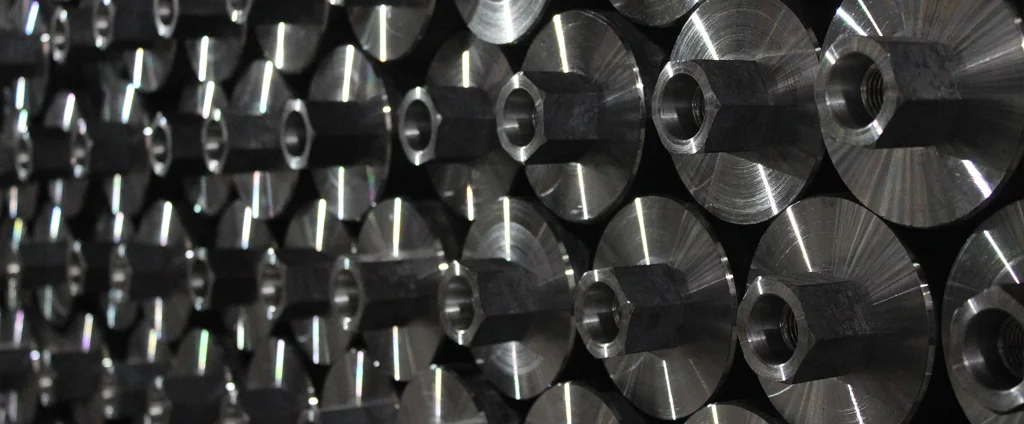SAE/AISI 1140 Carbon Steel (UNS G11400)

SAE/AISI 1140 is a resulfurized carbon steel alloy that offers a balance of high strength and excellent machinability. It is widely used in industries requiring durable and high-performance materials, making it a preferred choice for components such as gears, shafts, and bolts.
| Chemical Composition | ||
|---|---|---|
| Element | Min | Max |
| Iron | 98.39% | 98.93% |
| Carbon | 0.37% | 0.44% |
| Manganese | 0.70% | 1.00% |
| Phosphorous | —— | 0.04% |
| Sulfur | 0.08% | 0.13% |
The following table provides a list of SAE/AISI 1140 properties in both SI and US customary/Imperial units.
Click on the button to switch between Metric and Imperial units.
| Physical Properties | Metric |
|---|---|
| Density | 7700 - 8030 kg/m3 |
| Mechanical Properties | Metric |
| Tensile Strength (Ultimate) | 600 - 700 MPa |
| Tensile Strength (Yield) | 340 - 570 MPa |
| Young’s Modulus (E) | 190 - 210 GPa |
| Bulk Modulus (K) | 140 GPa |
| Shear Modulus (G) | 80 GPa |
| Elongation at Break | 14 - 18% |
| Reduction of Area | 39 - 46% |
| Poisson’s Ratio (ν) | 0.27 - 0.30 |
| Brinell Hardness | 170 - 180 |
| Thermal Properties | Metric |
| Thermal Conductivity | 51 W/m·K |
| Specific Heat Capacity (Cp) | 470 J/kg·K |
| Coefficient of Thermal Expansion (αL) | 1.3×10-5 1/°C |
| Electrical Properties | Metric |
| Electrical Conductivity | 4.1×106 S/m |
| Electrical Resistivity | 2.4×10-7 Ω·m |
The values in this table are approximate and can vary depending on various factors such as the specific manufacturing process and heat treatment applied to the alloy.
Advantages & Disadvantages of 1140 Carbon Steel
| Advantages | Disadvantages |
|---|---|
| High strength | Low toughness |
| Good machinability | Susceptible to corrosion |
| Wide range of applications | Can be difficult to weld |
| Low cost |
Applications of 1140 Carbon Steel
1140 carbon steel is a high carbon steel that is commonly used in the manufacturing of various components and equipment. Key applications include:
- Manufacturing of gears and shafts: Due to its high strength and hardness, it is commonly used in the manufacturing of gears and shafts for applications where high wear resistance is required.
- Construction equipment: Commonly used in the manufacturing of construction equipment such as excavator buckets, bulldozer blades, and demolition tools due to its high strength and toughness.
- Automotive components: Utilized in the manufacturing of automotive components such as crankshafts, camshafts, and gears, offering high tensile strength and wear resistance.
- Industrial blades and knives: Due to its high hardness and wear resistance, it is widely used in the manufacturing of industrial blades and knives for cutting and slicing applications.
- Agricultural equipment: Commonly used in the manufacturing of agricultural equipment such as plows and harrows due to its high strength and toughness.
- Railway components: Used in the manufacturing of railway components such as axles, wheels, and bearings, providing high strength and resistance to fatigue.
- Tool and die making: Frequently used in the manufacturing of tools and dies for metalworking applications, owing to its high hardness and wear resistance.
